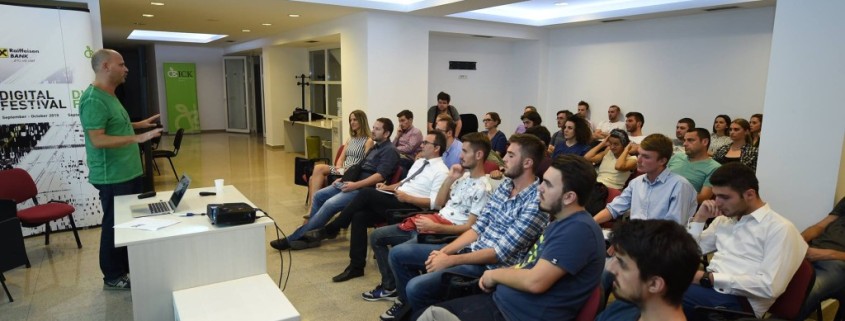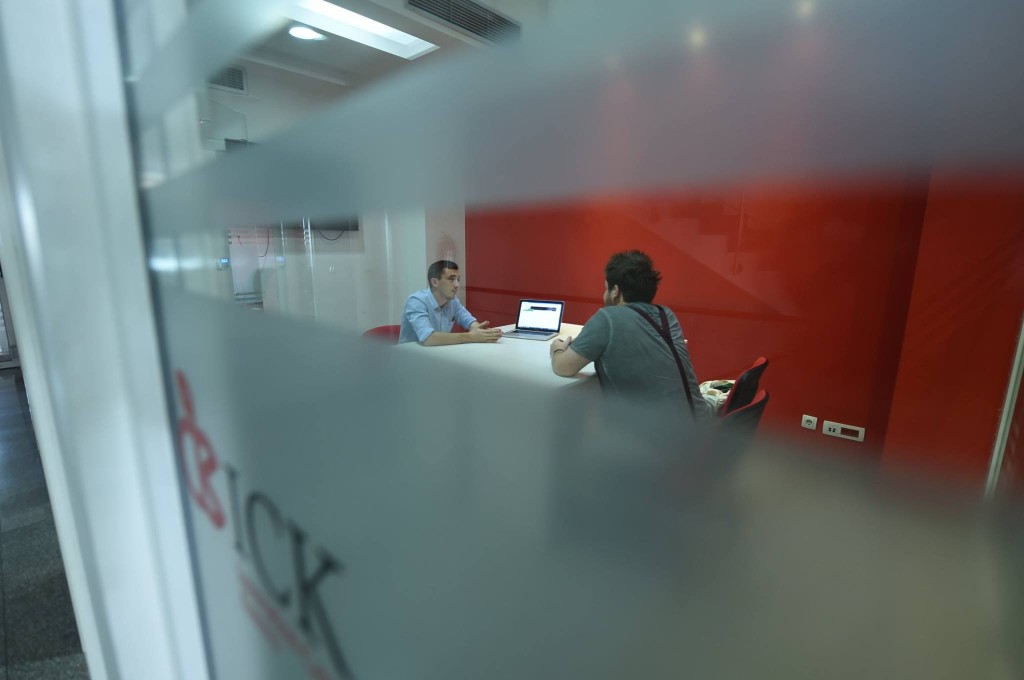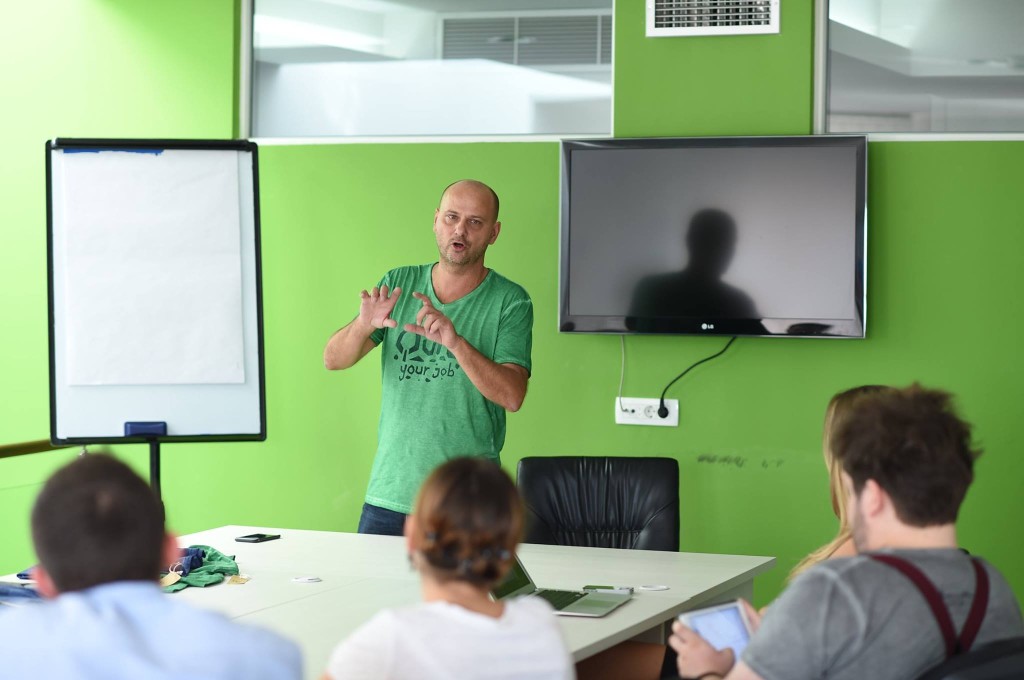StartupYard Fastlanes 2 Companies from Kosovo
Call it tiny, but don’t underestimate the young republic of Kosovo, where StartupYard managing director Cedric Maloux and I spent two amazing days and nights last week, meeting startupers and young people who are full of energy and promise for the future. Here are a few of the takeaways:
A Beautiful Place to Visit
Set aside your assumptions about the Balkans. While Pristina, the capital, doesn’t have the hallmarks of an old European city, with ancient gardens and cathedrals, or many quaint old cafes on stony streets (streets that aren’t paved are dirt tracks), it has its own kind of weird beauty. The city is a mix of the not-so-old, and the brand new. A crazy quilt of apartment blocks, avenues, standalone restaurants, and gleaming hotels.
We were told during our visit that remittances from the Albanian diaspora are one of the main sources of capital in the country. That money is proof of Albanian and Kosovan success around the world, and a sign that Kosovars and Albanians, by and large, are committed to returning home. You can see the effect of capital returning to the country: new construction is everywhere, and restaurants and cafes have sprouted on every street. In just a few days, we met dozens of people who had been educated outside the country, run successful businesses and made money- and all had come back.
Kosovo, perhaps surprisingly, considering its history of ethnic conflict, is rated among the freest and most equal nations, particularly majority Muslim nations. Over 95% of Kosovars are counted as Muslims, and yet the country is officially secular, with freedom of religion upheld for all.
Young and Hungry
With an average wage of just 300 Euros a month (Kosovo uses the Euro, although it is not a Eurozone country or even a member of the EU), the country’s standard of living is obviously lower than in the EU. There is also a massive trade imbalance, with the country importing far more than it produces.
But that situation has been improving, with 5% growth in GDP per year between 2003 and 2011. The private sector, virtually non-existent in 1999, has grown steadily. We encountered a strong sense of optimism from the entrepreneurs we met, mostly at ICK (Innovation Center Kosovo), a non-profit business incubator which is funded by the Norwegian Embassy, among other benefactors.
The country is also young, with the fastest rate of population growth in Europe, at 1.6%. This demographic pressure, plus a high rate of unemployment, means that many young Kosovars are experimenting with new business ideas, and looking to bring foreign capital and foreign business into the country.
A Lot to Learn
Cedric and I had lunch with Driton Hapciu, an ICK Board Member, and Renaissance man in the Kosovan tech industry. An electrical engineer by training, Hapciu was among the first to found an IT firm in Kosovo, long before the country formally existed, back in 1994. He pursued Peace Studies in Norway, and now, he says: “I’m just here to help.” He talked about the need for practical business experience and programming skills among young Kosovan engineers, who are educated heavily in math, but leave university with few real job skills.
Hapciu was also among the very first mentors to advise Mergim Cahani, in the earliest days of Gjirafa before the team joined StartupYard, and became a growing force in the Albanian and Kosovan tech scene. Every entrepreneur we met knew StartupYard because they knew Gjirafa, and most were eager to follow the search company’s example.
Small Fish Attract Big Fish
One gets the sense when talking to Kosovan entrepreneurs, that anything is still possible on the Albanian web. Basic services that Europeans and Americans take for granted have not been implemented yet. Online payment systems, e-commerce, online advertising, and marketing are in their infancy. There is not even a dominant platform for business listings in the country, and until the advent of Gjirafa, there was no online access to the country’s 100,000+ bus routes and other transport information.
Indeed, we were understandably skeptical when we first heard the pitch for Gjirafa, a “Seznam for the Albanian Web,” but meeting with tech entrepreneurs in Kosovo, one can see that these deficiencies also represent enormous opportunities. In what other country in Europe can a startup reasonably hope to become the gateway to the web for the next generation? That position is filled almost everywhere, by the likes of Google, Facebook, or other global players.
Their entrenchment also means that few companies seriously challenge them to keep innovating in smaller markets like Albania and Kosovo- I think this is why Google has ignored the region until now. And competition on the local level is of course good. Just ask the Czechs, who, thanks to Sezam.cz and its serious challenge to Google’s dominance, benefit from the fight to win market share with better products, faster speeds, and more alternatives. Google is rumored to spend more on development per user in the Czech market than in any other market in Europe. That’s no accident.
With plenty of room for local growth, startups in Kosovo hope to prove that their innovations can compete on the global stage. While many of the entrepreneurs I met with during our 2 days there were eager, they were often naive about the demands of the global market. Instead of innovating around a single vertical, trying to solve a single real problem, many presented amorphous business concepts that incorporated many different solutions for a whole host of issues.
This is not surprising, given that they’re dealing with a market in which there are no dominant solutions for many common problems. How can a startup based on retail operate in a country where e-commerce has almost no penetration? And what good is an online media business if it doesn’t have an ad-platform that can support it? The temptation is to try and re-invent e-commerce and advertising in order to have a market to serve. My hope is that players like Gjirafa will be able to provide a sort of guiding light for other local startups, encouraging them to work in narrower verticals, and providing a broad basis for the growth of online business in the region.
So keep your eyes on Kosovo.
Photos thanks to Innovation Center Kosovo (ICK)







